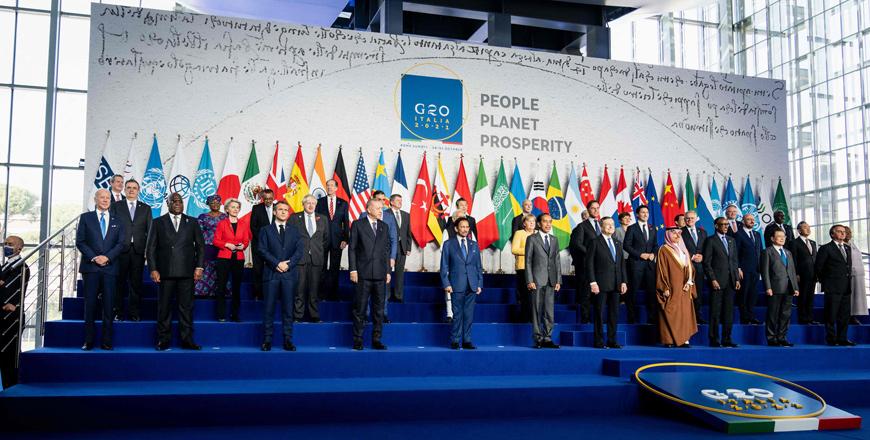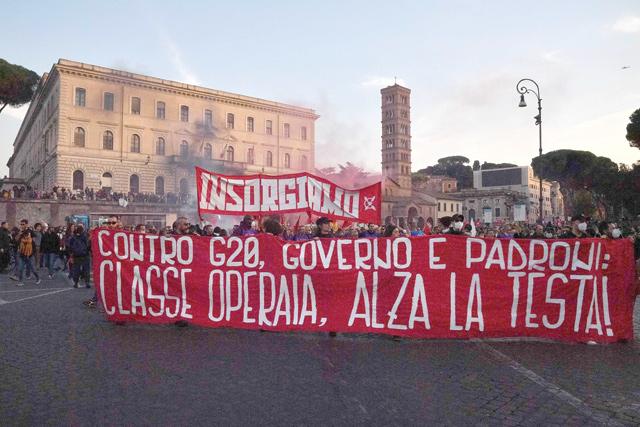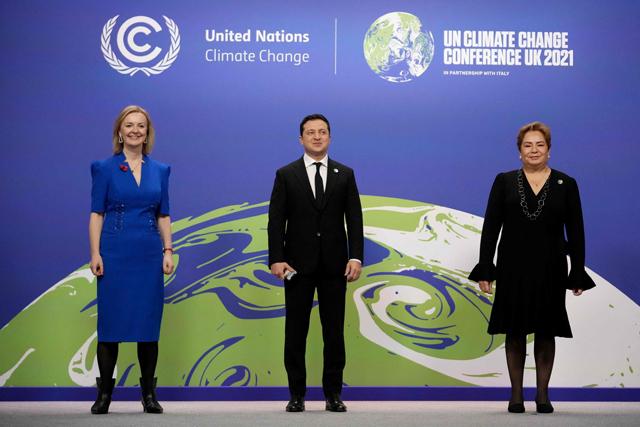You are here
G-20 leaders approve multinationals tax but wrangle over climate
By AFP - Oct 30,2021 - Last updated at Oct 30,2021

From left: US President Joe Biden, DRC President Felix Tshisekedi, French President Emmanuel Macron and other world leaders pose during a group photo at the G-20 of World Leaders Summit on October 30, at the convention centre ‘La Nuvola’ in the EUR district of Rome (AFP photo by Erin Schaff)
ROME — Leaders of the G-20 world's major economies approved a global minimum tax on the largest companies on Saturday, but were still haggling over the pressing issue of climate change.
In the first major announcement of the two-day G-20 summit in Rome, the bloc endorsed a "historic" agreement that would see multinationals subject to a minimum 15 per cent tax, said US Treasury Secretary Janet Yellen, who attended the talks.
The deal would "end the damaging race to the bottom on corporate taxation", she said in a statement.
The reform plan, already backed by almost 140 countries, seeks to end the practice of big corporates such as Apple and Google parent Alphabet of sheltering profits in low-tax countries.
But no consensus had yet emerged on a collective commitment on climate change, on the eve of the crucial COP26 conference starting in Glasgow on Sunday.
Hosts Italy are pushing the G-20 to collectively endorse the UN goal of limiting global warming to 1.5 ºC above pre-industrial levels, one of the aspirations of the landmark 2015 Paris climate accords.
"From the pandemic, to climate change, to fair and equitable taxation, going it alone is simply not an option," Italian Prime Minister Mario Draghi told leaders ahead of the closed-door talks.
G-20 members, many at different stages of economic development, remain at odds over the other major goal of reducing greenhouse gas emissions to net zero by 2050.
“We have a moment now when we can try and take some of the nebulous commitments in Paris, solidify them into hard, fast, commitments to cut emissions, to cut cars and coal and so on,” said British Prime Minister Boris Johnson, who will host the Glasgow talks.
‘Grave’ concern on Iran
The Rome meeting was the opportunity for a flurry of bilateral meetings between G-20 leaders, notably US President Joe Biden, who is hoping to reassert US leadership following the tumultuous Trump years.
After Iran said it would resume discussions with world powers next month on reviving the 2015 nuclear accord, Biden with his French, German and British counterparts expressed their “grave, growing concern” over Tehran’s nuclear programme.
The deal has been floundering since Biden’s predecessor Donald Trump walked out in May 2018 and imposed sweeping sanctions.
Ahead of the day’s talks, European Council president Charles Michel said that agreement on more stringent climate goals would be “difficult to accept” for countries dependent on coal, a veiled reference to China.
The stakes are high, as the G-20, which includes China, the US, India, the EU and Russia, accounts for 80 per cent of global GDP and nearly 80 per cent of greenhouse gas emissions.
As the leaders huddled in Rome’s fascist-era southern neighbourhood of EUR, thousands of climate protesters, many of them young, gathered in the city centre to demand tougher action.
“We’re asking G-20 leaders to stop playing games among themselves and finally listen to the people and act for the climate, as science has been asking for years,” Fridays for Future activist Simone Ficicchia told AFP.
Another key topic is the coronavirus pandemic, with both Chinese President Xi Jinping and Russian leader Vladimir Putin raising the issue of the unequal global distribution of vaccines, in their comments to the group via video link.
Putin blamed disparities on “dishonest competition, protectionism and because some states, especially those of the G-20, are not ready for mutual recognition of vaccines and vaccination certificates”, in his speech broadcast on Russian state television.
No new pledges are expected to address the vast gap in COVID-19 vaccine access between rich and poor countries.
But Draghi urged counterparts to “do all we can” to meet a WHO goal of vaccinating 70 per cent of the global population by mid-2022.
According to a source following the summit discussions, “all the leaders” agreed to commit to that target.
On Friday, Biden met Pope Francis and had a one-on-one with Macron where he admitted that Washington had been “clumsy” in its handling of a submarine deal with Australia and Britain that left Paris out in the cold.
Yet the Democrat faces a credibility test as his signature climate policy, part of a sweeping economic package, is held up amid infighting within his party in Congress.
Related Articles
ROME — Leaders of the world's major economies met Saturday at the G-20 summit in Rome, heading for a new deal on global taxation but still h
GLASGOW — Focus at the COP26 summit turned on Wednesday to how the world will pay for its ambitions to quit fossil fuels and help vulnerable
LONDON — Finance ministers from wealthy G-7 nations on Saturday pledged to commit to a global minimum corporate tax of at least 15 per cent,

















